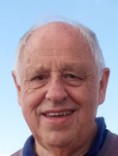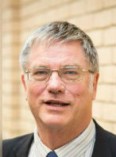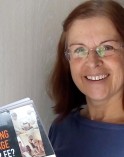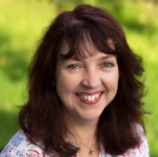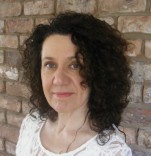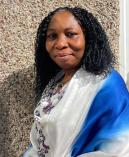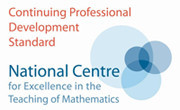Don’t Say That! Don’t Imply That! Do Say This!
Many students come to us with misconceptions firmly embedded and with rules that they have inferred from what has happened in the classroom. We will look at why such misunderstandings happen and how we can avoid or remedy them. We will also think about what we should be saying to our students.
Fiona Allan has taught Maths to all ages from 5 to 18, latterly in a college where she taught all levels from Numeracy and resit GCSE to A-Level. Since leaving the classroom, she has worked on many projects including ‘Raising maths attainment through enhanced pedagogy and communication’.
Engaging the Disengaged
Some students are a joy to teach, but others ‘hate’ maths. We will look at strategies which have worked for me and see how these relate to theory. There will be lots of practical ideas.
John Barton has been a teacher for more than 25 years, initially as a primary teacher, before moving into F.E. at Selby College, North Yorkshire in 2001, specializing in Skills for Life. He trained more than 150 numeracy teachers. He has been the Regional Maths Lead for the North West and Yorkshire and the Humber regions based at the University of Huddersfield (HUDCETT). He is now retired but continues as chair of NANAMIC and Honorary Secretary of the Meeting of the Mathematics Subject Associations.
The Focused 15
How can a concentrated curriculum support learners in GCSE Resit Maths? This workshop explores the research behind the Focused 15 Scheme of Learning and its impact in Further Education.
Emma Bell has been a teacher for 20 years and has led C4ME - the Centre for Maths Excellence based at Grimsby Institute for the past 3 years. She's worked in an Inner London Secondary, was Head of Maths at an 11-16 school in Grimsby and coordinated GCSE and Functional Skills maths at a sixth form college.
Emma fouses on Post-16 mathematics and research, delivering CPD across the country (and the world!), specialising in motivation; ensuring thet students have belief and confidence in their abilities. She infects her fellow teachers with that confidence and shows her students that MATHS IS A SUPERPOWER!
Emma wants to spread the "Maths Love" and help everyone that she can - teachers and students alike. She tweets as @El_Timbre.
Adults (19+) studying GCSE Mathematics in Further Education (FE) Colleges in England: Confidence, anxiety and performance.
My previous practitioner-based research with adults revealed levels of anxiety about both mathematics and examinations which was more pronounced for UK educated females than either male students, or those who did not attend school in the UK. This has led to a mixed method investigation to gather learners’ confidence and anxiety levels, and to compare those levels to GCSE Mathematics examination results to ascertain whether levels are correlated with performance.
This presentation is about the results of the pilot study, and I will also present some impacts of the pandemic on the main investigation.
Jennifer Stacey teaches GCSE mathematics in an FE college in the Midlands to adults and 16-18 year olds. She has worked in FE since 2005, and has taught Key Skills, Basic Skills, Functional Skills and ESOL Maths, in addition to GCSE.
Jenny has been involved in several projects, including helping to develop the teachers’ CPD and students’ sections on numeracy for the British Council’s ESOL Nexus website, and runs www.esolmaths.co.uk as a free resource for teachers delivering maths to those whose first language is not English.
She is currently on a one-year research sabbatical from her college in order to focus on the data collection phases for a part-time Doctorate in Education with Sheffield Hallam University.
Core Maths Across the Curriculum
In this workshop we will explore the maths requirements of other level 3 subjects and consider how our teaching of level 3 Core Mathematics can have a positive impact on student progress and attainment acros the curriculum. The workshop will provide an overview of the Core Maths story so far, will give a sense of what it is like to teach and provide you with a few pointers of how to make it a success in your college or school.
In addition to teaching mathematics (including Core Maths for four years), Tom Rainbow has been a Core Maths Lead for the Core Maths Support Programme (CMSP), a Further Maths Support Programme (FMSP) Area Coordinator and a teacher educator. Despite having always been in thrall to the beauty and elegance of pure mathematics, he is also passionate about the empowering properties of mathematics in helping students understand the world around them and he believes that all students should have the opportunity to pursue this form of learning. He currently works as an Advanced Maths Support Programme (AMSP) Area Coordinator as well as sharing responsibility for resourcing and coordination of the AMSP’s Core Maths professional development.
Colour in Mathematics
In this session, we will look at many varied examples to demonstrate how the use of colour can add clarity to explanations in Mathematics.
Colleen Young has been involved in education throughout her career, specialising in Mathematics and IT as a teacher in schools and Distance Learning colleges; she has also worked in training. Colleen also has examining experience and is a Member of the Chartered Institute of Educational Assessors. Colleen has a keen interest in how students learn and how technology can enhance the learning experience. She enjoys collaborating with fellow educators and has presented several sessions at various Maths conferences for teachers.
Colleen studied at Manchester University for her undergraduate degree in Mathematics and Management Science and at UCL’s Institute of Education for her Masters Degree in Mathematical, Statistical and Computing Education.
ASK Maths a city-wide GCSE resit project
In this session you will have the opportunity to look at the work that we (MEI) have been doing with GCSE resit students across the city of Stoke. As consultants on the ASK maths project, we have worked with teachers and students and will share some of the challenges and successes.
- Competition that had 3600 entrants all students below grade 4
- PD and lesson study for maths teachers; reaching out to vocational subject teachers to develop maths
- How cognitive load theory works in the context of GCSE resit & functional skills
- How the project has adapted to work in the brave new world of blended learning
Martin has a BEd Hons in Secondary Mathematics, and a post graduate certificate and Diploma in Advanced Teaching and Learning. He has taught in Further Education for over 20 years during which time he has been a Curriculum Leader for Mathematics, Curriculum Manager for Access to HE, GCSEs & Education, and a Professional Development Lead for Mathematics. Alongside working in FE, he has worked as a Professional Develpment Lead across the FE sector. He joined MEI in January 2019.
Supporting your students to prepare more effectively for
university-level maths and maths-related courses
As part of her role as Director of NRICH, Dr Ems Lord oversees the free advanced problem-solving STEP Support Programme which has already supported hundreds of students from schools and colleges nationwide to prepare more effectively for their forthcoming university-level mathematics courses. In this session, Ems will introduce you to the programme, exploring its key aims and approaches, and share some of her favourite resources for you to enjoy with your students.
Dr Ems Lord is the Director of NRICH and a research fellow at the University of Cambridge. Her research interests reflect her keen interest in widening participation in mathematics at both university level and in our wider society. Ems is an active member of the All-Party Parliamentary Group for the Teaching Profession and a recent President of The Mathematical Association.
A tour around the support available for maths teachers and managers from the Education Training Foundation (including the Excellence Gateway and your Regional Specialist Lead)
In this session you will be introduced to the many support opportunities from the Education Training Foundation including the Excellence Gateway. The Excellence Gateway has a specific Maths exhibition site with resources linked to:
- British Values
- support for ESOL learners studying maths
- leading and managing maths
- and many more
There are links to resources to support teachers to develop both their personal maths skills and their pedagogical skills. The resources are free to download and serve both practitioners and managers. The session will dig into some of the wider resources which maths practitioners and managers may find useful for example research studies, Centres for Excellence in Maths (CfEM) outputs and materials to support learners with special educational needs and disabilities.
Gail Lydon MA, CTeach is the Education and Training Foundation (ETF) Yorkshire and Humberside Regional Specialist Lead (RSL) for maths and English. She has supported management and practitioners in the development of maths and English provision since 2000. She has worked in all sectors: work-based learning; further education; secure estate; and voluntary and community. Alongside her work as RSL Gail is presently involved in a number of research projects.
Centre for Excellence in Mathematics CfEM, networking and impact of Action Research
In this session we will share with you the work that the SfEM at harlow College is doing with teachers and learners resitting mathematics up to L2. We have worked with teachers within the centre and across 12 network partners and will share some of the successes achieved and plans going forward. We will also share some of the challenges and complexities that exist within the sector.
- Impact of Action Research - teachers learn from their findings
- Teaching approaches such as dialogic
- Growing minds in mathematics
- Impact of Networking CPD
- Impact of Collaborative planning.
Vivian Kimeng has a PhD in Statistical modelling and DTLLS in FE mathematics with over 14 years of teaching in Further Education. She has taught from Basic Skills Numeracy to a Level. During this time, she has been a Curriculum Lead in Maths and now Centre lead for CfEM which has given her the opportunity to work alongside 20 other centres to share ideas and practice and benefit from national expert input. She has also recruited 12 network partners, Most recently she has been involved in mentoring and supporting staff.
Effective use of technology in A level Maths
In this workshop we will examine how to use technology to enhance the teaching and learning of A level Mathematics. We will focus on how to make the best use of dynamic graphing files as a teacher, including considering effective questioning styles, and how to encourage student use of technology to support understanding.
Tom Button is an expert in the use of technology for the teaching and learning of mathematics. He presents professional development courses and writes resources on the use of technology in maths. He is also leading on MEI’s Data Science developments. After gaining a BSc in Mathematics, Tom completed his PGCE in Secondary Mathematics in 1995 and has since completed an MA in ICT and Education. Tom taught for 10 years in Sixth Form Colleges before joining MEI in 2005.



